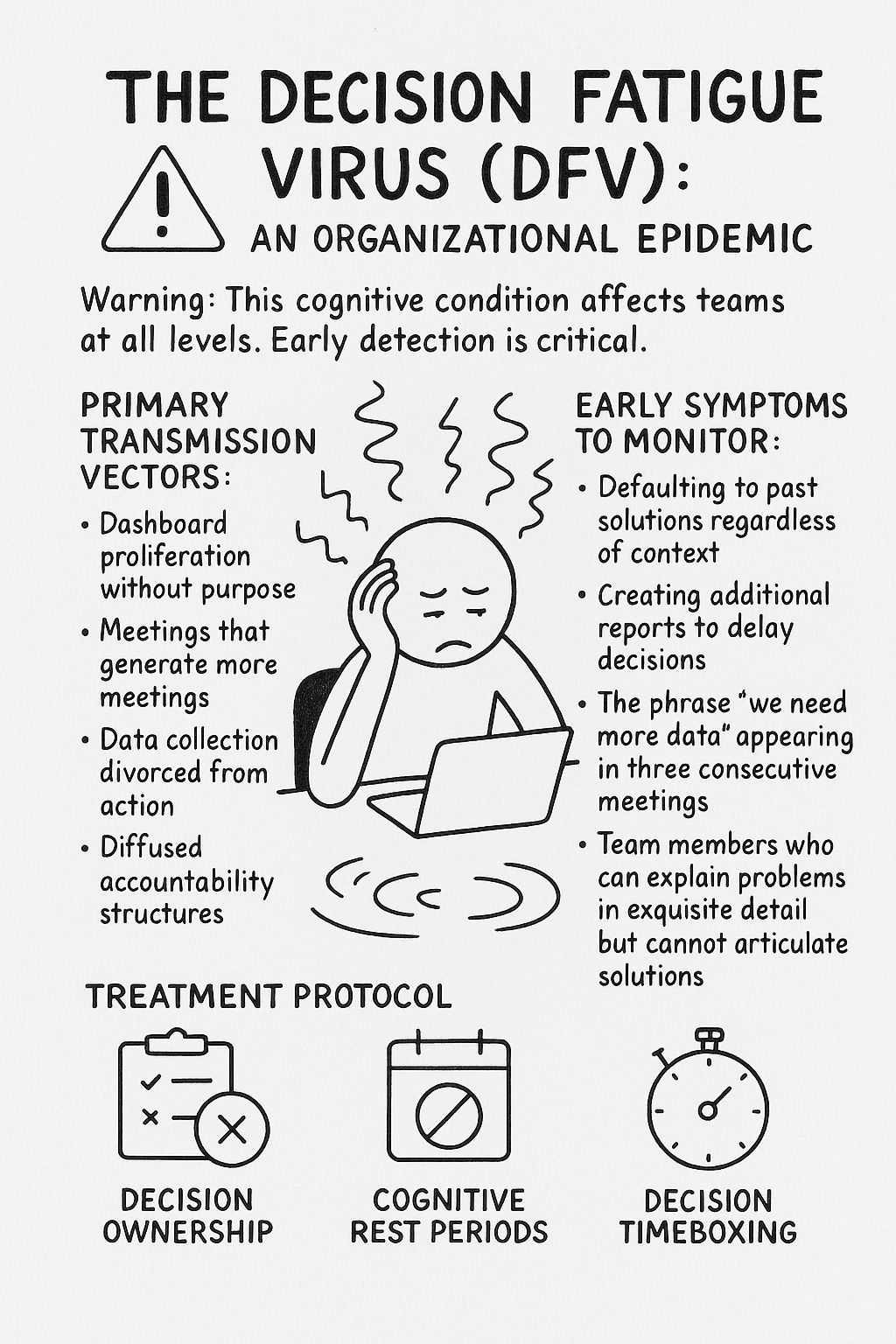URGENT: Public Health Advisory from the Center for Data Decision Hygiene
Warning: This cognitive condition affects teams at all levels. Early detection is critical.
The Decision Fatigue Virus depletes decision quality while maintaining the illusion of progress. What begins as simple tiredness evolves into judgment impairment and eventually decision paralysis - all while the infected believe they're being thorough.
Primary transmission vectors:
Dashboard proliferation without purpose
Meetings that generate more meetings
Data collection divorced from action
Diffused accountability structures
Early symptoms to monitor:
Defaulting to past solutions regardless of context
Creating additional reports to delay decisions
The phrase "we need more data" appearing in three consecutive meetings
Team members who can explain problems in exquisite detail but cannot articulate solutions
As the military strategist Carl von Clausewitz observed, "The greatest enemy of a good plan is the dream of a perfect plan." This virus thrives precisely in the gap between these two states.
Treatment Protocol
Decision Ownership: Implement clear accountability using frameworks like RACI. As one product leader told me, "When everyone owns a decision, no one does."
Cognitive Rest Periods: Schedule decision-free zones in your calendar. The brain, like any muscle, requires recovery periods.
Decision Timeboxing: Most decisions should be made with around 70% of the information you wish you had. The cost of delay often exceeds the value of additional data.
Case Study: The Finance Team Outbreak
Consider what happened at a mid-sized technology company when implementing a new reporting system. The team initially moved quickly, but gradually succumbed to circular discussions where each potential solution generated three new problems to solve.
Six months and dozens of meetings later, they had produced impressive documentation but no actual system. The team had mistaken activity for progress—a classic DFV infection pattern.
The treatment was straightforward but required discipline: they designated a single decision owner with authority to make final calls after consulting stakeholders. Decisions were timeboxed, with a simple log tracking outcomes and rationales.
The only known immunity comes from robust decision frameworks and clear accountability.
In the world of data strategy, as in medicine, prevention remains the most effective approach. Build decision hygiene into your organizational culture before symptoms appear.
As Jeff Bezos noted about Amazon's culture: "If you're good at course correcting, being wrong may be less costly than you think, whereas being slow is going to be expensive for sure."
Stay vigilant, document your decisions, and maintain good decision hygiene.
Sven, from The Center for Data Decision Hygiene


